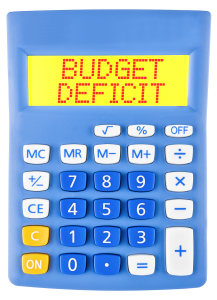PA’s patchwork budget contributes to projected $1.85B shortfall

By Andrew Staub | PA Independent
HARRISBURG, Pa. – Treasurer Rob McCord says Gov. Tom Corbett’s administration again dipped into a line of credit to boost a flagging general fund.
“We see a deteriorating financial scenario that casts serious doubt on Pennsylvania’s ability to balance its budget this year,” McCord said Thursday. “The state’s fiscal health remains precarious.”
That was the jab. The Independent Fiscal Office brought the right-hook when it announced the state is facing a $1.85 billion shortfall next fiscal year – an immediate challenge for Gov.-elect Tom Wolf, who will probably face policy roadblocks in a Republican Legislature, too.
The state, the IFO said, is due for a “snapback” next year after Corbett and Republican lawmakers patched this year’s budget with non-recurring revenue and one-time savings in lieu of raising taxes in an election year. Those one-time fixes aren’t automatically built into the next spending plan, leading to the anticipation of lower revenue and higher spending.
SCARY MATH: The Pennsylvania Independent Fiscal Office’s calculations project a budget shortfall of $1.85 billion next year.
Beyond the issues for next year, the state is facing long-term deficits that could top $2.5 billion by 2019-20, according to the IFO’s five-year outlook. Pension costs will continue to drive spending, but revenue won’t keep pace because of an eroding tax base in an aging state, the IFO found.
Mark Ryan, deputy director of the IFO, said waiting for a return to normal growth won’t solve the problem. The issue can only be deferred — as the state did this year — for a time, he said.
“Just waiting them out won’t make them go away,” Ryan said. “It probably goes without saying, but this will require difficult policy choices from policymakers over the next several years as the implications of these budget deficits become apparent.”
Wolf said Thursday he would start a task force to deal with the problem.
The incoming governor issued a statement calling the IFO report “bad news for Pennsylvania.”
“As bad as today’s news is, what lies ahead could be worse. It is critical that we understand the full extent of this budget crisis so that we can address our challenges in a responsible manner.”
Indeed, the IFO report — coupled with the state’s drawing another $750 million from its line of credit with the treasury — made for more harrowing fiscal news in a year that’s already seen two credit rating downgrades after lawmakers passed a budget.
Still, Republican state Sen. Jake Corman, the newly minted Senate majority leader, stood behind the decision to stitch together this year’s spending plan with $572 million in non-recurring revenue, $619 million in one-time savings and $332 million in funding shifts.
Lawmakers tried to cut spending and use whatever sources possible to pay the bills, Corman said. Such maneuvers aren’t unprecedented.
“Ideally, it’s OK to use a little bit of that,” Corman said. “We probably used more than we normally would, but that’s the time called for.”
With Wolf’s first budget presentation in March, it’s too early to say how lawmakers will address a deficit, Corman said, though he’s “pretty sure” his caucus doesn’t want to raise taxes.
While Wolf painted the picture that he’s inherited a fiscal mess, Corbett’s press secretary, Jay Pagni, said the governor has worked to keep spending in line with revenue during his tenure and hasn’t raised taxes.







